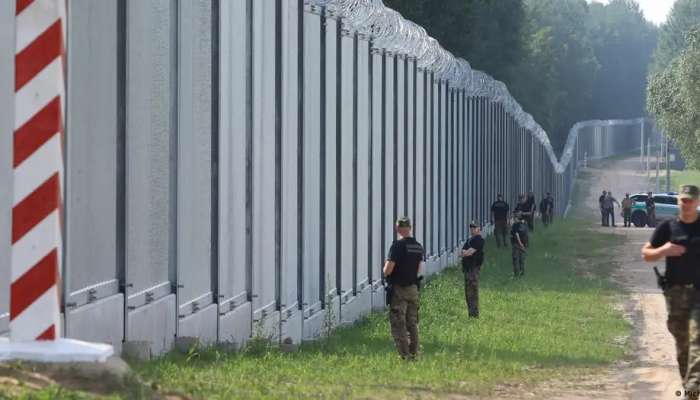
Warsaw: Poland has agreed to send 1,000 additional troops to the border with Belarus after a request from the border guard service, state-run news agency PAP said on Tuesday.
Poland said the move came amid a renewed rise in illegal border crossings aided by Belarusian border guards and after soldiers from the Wagner mercenary group appeared near the frontier.
The Polish Defence Ministry said the deployment was "due to the dynamic situation on the Polish-Belarusian border" and after a request from the border guard itself.
Some 2,000 troops soldiers currently operating on the border with Belarus, assisting 5,000 border guards.
Deputy Interior Minister Maceij Wasik said migration pressure on the border with Belarus was growing.
The crossings, he said, were being organised by Belarusian border guards without whose participation "it would not be possible to pass."
Wasik said the Belarusian services had used tools to damage the border fence to allow migrants to cross.
The deputy minister added that there had been an uptick in aggression against Polish border guards, soldiers, and police officers at the border. He said bottles, stones, and branches had been thrown at them and, in one incident in June, an object thought to have been fired from a pneumatic gun had pierced the window of a border guard car.
On Monday, the head of the Polish border guard, Tomasz Praga, said Belarusian secret services had become "a criminal group that is masterminding illegal migration."
Praga said the services were making "huge profits" from people trafficking.
He said 19,000 migrants had already tried to enter Poland from Belarus this year alone, compared to 16,000 in the whole of 2022.
A previous border crossing crisis that began in 2021 saw tens of thousands of migrants cross or try to cross into Poland from Belarus.
Those trying to enter Poland, and therefore the EU, via Belarus are coming from countries such as Afghanistan, Algeria, Bangladesh, Sri Lanka and Syria.
Since 2021, Poland has installed a 5.5-meter-high fence along the land sections of its border with Belarus.
Soldiers from Russia's Wagner mercenary group have appeared near the border in recent weeks, a development that has also seen Lithuania boost border security.
Wagner fighters arrived in Russian-allied Belarus as part of an agreement that ended their armed rebellion in late June and allowed their leader Yevgeny Prigozhin to escape criminal charges.
Prime Minister Mateusz Morawiecki has said the arrival of Wagner is aimed at destabilizing the situation on NATO's eastern flank.
The leaders of Lithuania and Poland have said they are braced for provocations from Russia and its ally Belarus, which has also staged military maneuvers in the Grodno region of Belarus.
Grodno is close to the Suwalki Gap — a lightly populated sliver of land that runs 96 kilometers (60 miles) along the Polish-Lithuanian border.
The gap connects the three Baltic states of Lithuania, Latvia and Estonia with the rest of the NATO alliance and separates Belarus from the Russian exclave of Kaliningrad on the Baltic Sea.